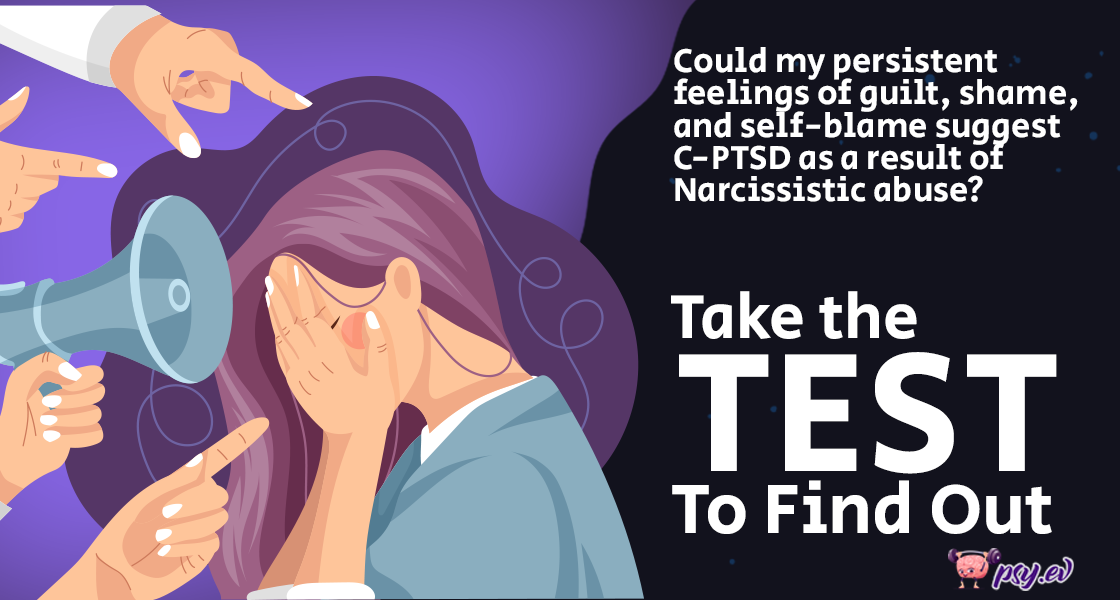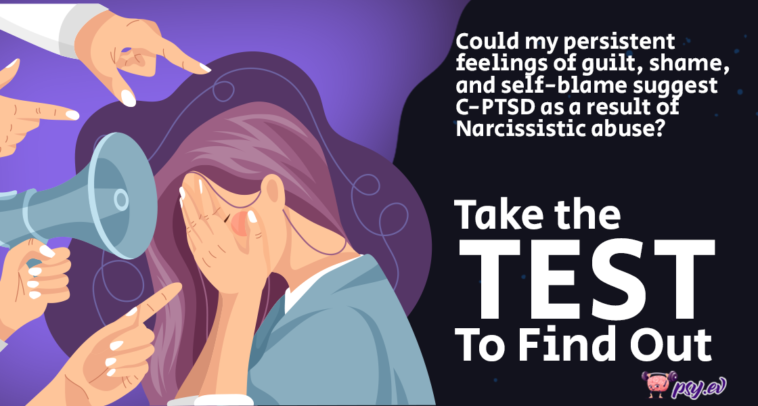Complex trauma (C-PTSD) is commonly associated with recurrent encounters with emotional neglect, verbal and psychological abuse, and emotional abuse. Being with a narcissistic individual, you may suffer recurrent abuse due to emotional manipulation.
Through this complex PTSD narcissistic abuse test, you can find out whether you have C-PTSD syndrome. The c ptsd narcissistic abuse test was created by professional mental health specialists to help individuals quickly identify their symptoms and seek immediate help.
Understanding C-PTSD and Narcissistic Abuse
If you are a survivor of C-PTSD because of narcissistic abuse from a close person, you may be battling with emotions such as depression, suicidal thoughts, and uncontrollable anger. You may be repeating the traumatic events and feel disconnected from your body, the world and/or struggle to access your trauma memories.
On the other hand, due to the trauma, most survivors mostly feel guilty, vulnerable, and isolated from other people, making them feel imperfect and distinct. C-PTSD sufferers’ conflicted feelings towards their abusers are understandable.
The majority of individuals suffering from C-PTSD become trauma-bonded to their abusers. They may also let the abuser control their lives for them. Moreover, narcissistic abuse often consists of emotional abuse in the form of insults, criticism, threats, or gaslighting.
Your narcissistic partner or family member may have gaslighted you in front of your friends or family, mostly acting innocent and confused as they correct you. Complex trauma survivors may struggle to detect gaslighting since the narcissist has groomed them to stay quiet instead of protesting.
Most C-PTSD sufferers commit to living their lives and forming relationships completely different from those they had as a child. It is important to leave before it is too late. Take the test and find the peace you deserve.
What Should I Do Next?
The journey of a complex trauma patient is layered with chronic trauma caused by ongoing stressors such as long-term domestic abuse, childhood trauma, and physical abuse. If the C-PTSD narcissistic abuse test results indicate that you suffer from C-PTSD, seek help.
Many hospitals provide inpatient and outpatient services. The decision is based on the severity of the patient’s symptoms and any co-occurring conditions. Other treatment method includes individual therapy with a licensed therapist. Patients can get the assistance and direction required to deal with their triggers.
C-PTSD patients who undergo proper therapy and counseling can learn how to control their symptoms and learn to be optimistic effectively. However, you can always opt for group therapy if you are uncomfortable.
Group therapy offers a secure setting and helps individuals get social support from others with similar symptoms. In group therapy sessions, C-PTSD patients can talk about their feelings and ideas and get an insight into how to manage their symptoms.
Working with a licensed therapist will help you discover unproductive thought patterns and progressively progress toward changing them. C-PTSD may also be given medication to assist them in managing symptoms. The prescribed medication may include mood stabilizers, antidepressants, antianxiety and antipsychotic medicines.
Do not be afraid to walk out of a toxic environment. Finding immediate help is the best step toward a stable and positive lifestyle.


